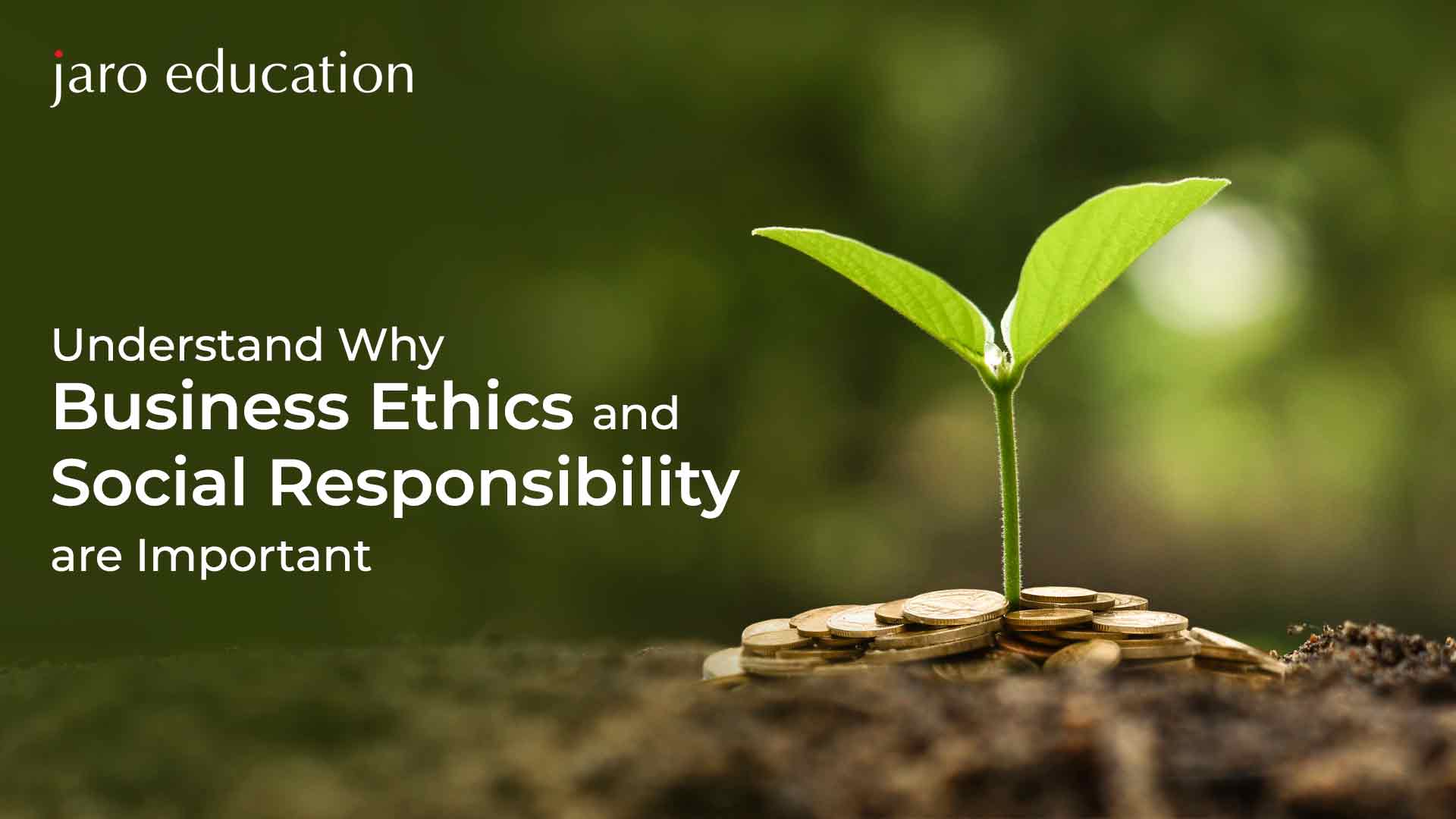Understand Why Business Ethics and Social Responsibility are Important

Understanding business ethics and social responsibility
Business ethics are the set of values and principles that guide how a company conducts its operations. These values include honesty, integrity, respect, and fairness. They also include principles such as transparency, accountability, and social responsibility. Business ethics are often codified into a company’s code of conduct, which outlines the company’s expectations for employee behavior and decision-making.
Social responsibility is a company’s commitment to doing what is right for the community, environment, and stakeholders. This includes activities such as reducing waste, using renewable energy sources, and engaging in philanthropy. Companies have a responsibility to ensure that their operations have a positive impact on the environment and society.
The Executive MBA course by Dayananda Sagar University covers Business Law, Ethics & Social Responsibility in its curriculum. It is a 17-month course that readies working professionals for today’s dynamic business world and helps them stay relevant at every step of their careers. You can get more details and apply for enrollment here.
Why business ethics and social responsibility are important?
Business ethics and social responsibility are two concepts that are closely intertwined. Let’s understand why it’s important for any business to adhere to them.
Create a better working environment
Business ethics promote fairness, trust, and transparency among all members of the organization. Adhering to business ethics protects the interests of everyone involved, and ensures that the organization is operating in an ethical manner. Businesses that respect the right of the employees and treat them fairly can create a better working environment with a strong and unified team of employees.
Better sales and profitability
In this age of social media, where customers are becoming more vocal about their experiences, it is important for businesses to maintain a positive reputation. Customers are more likely to purchase from a company that they know is honest and trustworthy. Business ethics provide a framework for organizations to adhere to and helps to build customer trust and loyalty, which leads to increased sales and profitability.
Minimize legal risks
Businesses that practice ethical principles ensure that their business practices and behaviours are within the boundaries of the law. Such companies are less likely to be accused of unethical practices, which minimizes their legal risks.
Maintain a positive reputation
Social responsibility encompasses the idea of corporate social responsibility, which involves organizations taking responsibility for the impact of their actions on society and the environment. By taking responsibility for their actions, organizations can help to combat climate change and improve public health. Companies that are socially responsible often have a better reputation and attract more customers, as well as employees who are committed to the company’s mission.
Conclusion
Businesses that prioritize ethical behaviors and social responsibility ultimately benefit from improved profitability, employee engagement, and customer loyalty. As businesses continue to grow and expand, it is essential that they remain mindful of the ethical and social responsibilities they have to their stakeholders. Doing so will ensure that their actions and decisions align with their corporate values, which can lead to a stronger reputation and more sustainable profits.
Find a Program made just for YOU
We'll help you find the right fit for your solution. Let's get you connected with the perfect solution.

Is Your Upskilling Effort worth it?

Are Your Skills Meeting Job Demands?

Experience Lifelong Learning and Connect with Like-minded Professionals

